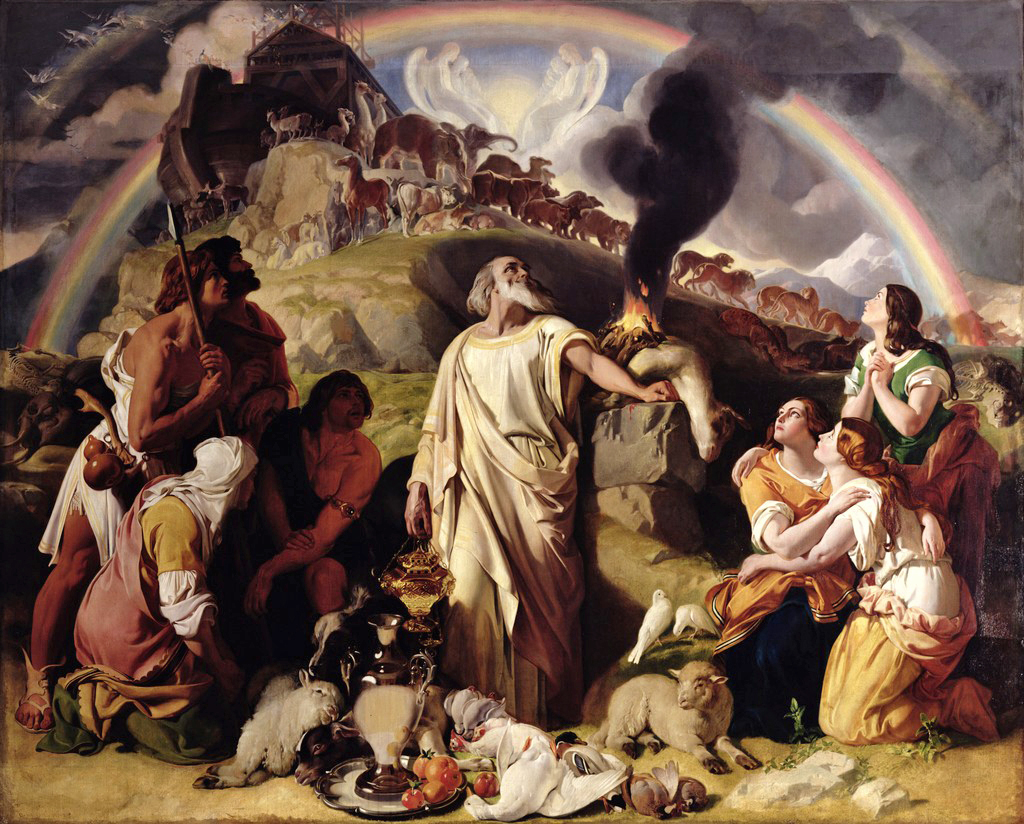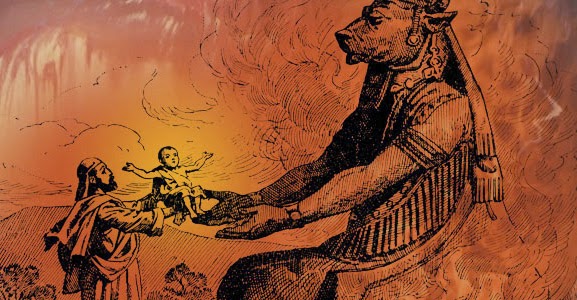Category: OT
-

Translating puns
…an offering made by fire, of a sweet savour unto the LORD. Lev 1:9 This phrase “sweet savour” shows up repeatedly in the first several chapters of Leviticus, variously translated as “sweet aroma”, “pleasing aroma”, “soothing aroma”, “pleasing odor”, “sweet fragrance”, etc. In the Hebrew, it is reach nichoach (pronounced rey’-akh nee-kho’-akh—the kh is like the ch in […]
-

Frame Narrative
Jason Farley gave a talk recently on frame narrative, using The Princess Bride as an example. The story of Wesley and Buttercup is set within the frame, the encompassing context, of the Grandfather and his Grandson. At the beginning, the boy doesn’t understand the Grandfather’s signs of affection, but moans—he’ll pinch my cheek—and reluctantly agrees […]
-

Tyrant and Idol
I was recently listening to a discussion on the book of Exodus, and one of the key themes that emerged was tyranny, oppression, and slavery, and the willingness and need to stand up against it. Naturally, this is relevant today. The thought occurred to me as I was listening that throughout the biblical narrative tyranny […]
-
Bear the Name
Thou shalt not take the name of Yahweh thy God in vain. Ex 20:7 Who are the elect? or, rather, to what are they elected? From the beginning, God has made distinctions; he has chosen some and not others. Eve and her seed are chosen over the serpent and his. Seth was chosen, appointed, as […]
-
Dying You Shall Die
A question arises: is the death that follows the eating of the fruit of the Tree of the Knowledge of Good and Evil a penalty? The language used in the law—he shall surely be put to death, or the like—is not used here. The same emphatic verb doubling is used but the form of the […]
-
The Tree of the Knowledge of Good and Evil
One fatal tree there stands, of knowledge called,Forbidden them to taste: Knowledge forbiddenSuspicious, reasonless. Why should their LordEnvy them that? Can it be sin to know?Can it be death? Paradise Lost, Book IV Adam was given only one rule or commandment regarding food: he may eat fruit of any of the trees of the garden, […]
-
Sons of God
In a straight reading of the first part of Genesis 6, verse 3 seems oddly placed. Verses 1 and 2 are beginning to tell about men multiplying on earth and the Sons of God taking wives of the daughters of men. Then comes verse 3, where God interjects that his spirit will not always strive […]
-
Sun, Moon, and Stars
The sun moon and stars created on day four give light to the earth below. They are called rulers of the day and of the night, symbols or types of the spiritual and temporal rulers on earth. When Joseph dreams of the sun, moon, and stars bowing down to him, Jacob immediately and rightly understands […]
-
Evening and Morning
On the first day God created light. He separated the light from the darkness. He called the light Day and the darkness he called Night. These are divided; they’re not present together but one follows the other in rhythm. The days of the creation week are marked out by the repeated phrase evening and morning. […]
-
In the Beginning
In the beginning, God created… This word beginning (Heb. reshiyth) is interesting. It can mean first in time and also in position or prominence, as in head or chief. It is also frequently rendered as firstfruits. The article, the in English, isn’t present in the Hebrew. It just reads b’reshiyth, In beginning… This is common […]